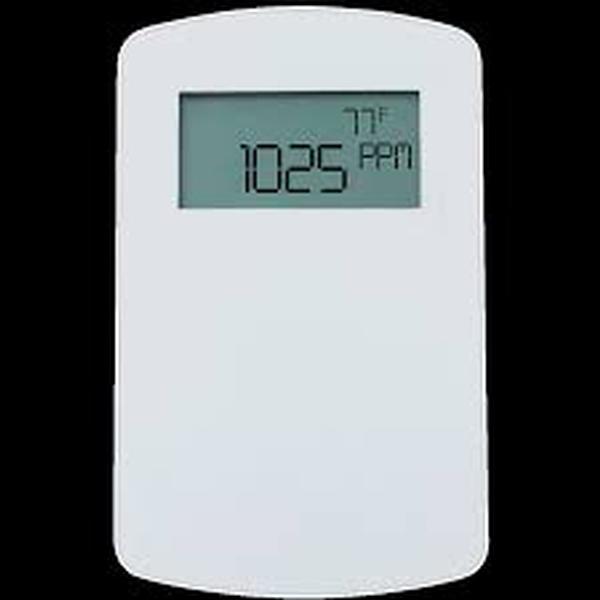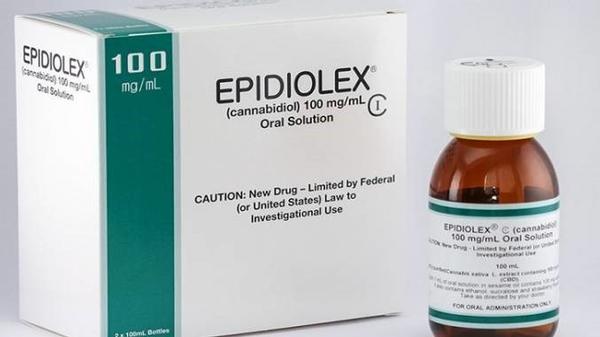Blog & Latest News
Global Cannabis Update
Cannabis legalization is sweeping the globe! Minds are changing around the world and every day brings news of efforts towards legalization. Here’s a list of just a few:
Read More...
The National Legislative Assembly of Thailand has proposed an amendment to reclassify marijuana as medicinally legal and regulate its use. Analysts are suggesting that medicinal cannabis will be legal by the end of this year. Cannabis has been traditionally used in Thailand and its prohibition is because of Western influences. Proponents hope that presenting legalization as a return to traditions will sway public opinion.
Malaysia has abolished the death penalty for 32 offenses, including drug charges. The country’s cabinet has been discussing the benefits of marijuana and legislation decriminalizing medical marijuana is in the works.
Sri Lanka will begin cultivating cannabis for medical export and may allow the legal use in Ayurvedic practices. Ayurveda is a healing tradition begun in ancient India.
South Korea is considering amending laws to allow CBD products to be imported. NEWS FLASH! South Korea just legalized medical marijuana!
China and Japan have approved research and limited cultivation.
India, Sri Lanka, Nepal and Bhutan are all discussing legalization because of the money that the industry could bring to their countries.
South Africa’s constitutional court has ruled that prohibition of the plant is unconstitutional and individuals may grow marijuana for personal use.
Mexico, in its attempts to control the violence of the illegal drug trade, has also declared the prohibition of marijuana to be unconstitutional and a violation of a person’s civil rights.
The country of Georgia has legalized marijuana possession, although cultivation and sales remain illegal.
The Philippines has passed House Resolution 180, which legalizes medical marijuana in all of its forms.
Â
Malaysia has abolished the death penalty for 32 offenses, including drug charges. The country’s cabinet has been discussing the benefits of marijuana and legislation decriminalizing medical marijuana is in the works.
Sri Lanka will begin cultivating cannabis for medical export and may allow the legal use in Ayurvedic practices. Ayurveda is a healing tradition begun in ancient India.
South Korea is considering amending laws to allow CBD products to be imported. NEWS FLASH! South Korea just legalized medical marijuana!
China and Japan have approved research and limited cultivation.
India, Sri Lanka, Nepal and Bhutan are all discussing legalization because of the money that the industry could bring to their countries.
South Africa’s constitutional court has ruled that prohibition of the plant is unconstitutional and individuals may grow marijuana for personal use.
Mexico, in its attempts to control the violence of the illegal drug trade, has also declared the prohibition of marijuana to be unconstitutional and a violation of a person’s civil rights.
The country of Georgia has legalized marijuana possession, although cultivation and sales remain illegal.
The Philippines has passed House Resolution 180, which legalizes medical marijuana in all of its forms.
Â
This is just a short list of the increasing global efforts towards cannabis legalization. Universal Controls is proud to be a leader in COâ‚‚ enrichment, irrigation and nutrient delivery and controls. We applaud the courageous efforts being made towards global legalization!
Are My COâ‚‚ Sensors Accurate?
Universal Controls recently received a phone call from a client who was concerned about CO₂ sensor accuracy. In a facility with multiple sensors for environmental, as well as, enrichment control the sensors were all reading slightly differently. Which one is correct? The short answer; all of them. Let’s explain.
What is being measured?
Carbon dioxide detectors are manufactured, tested and rated on a sensitivity range and the level of sensitivity required depends upon the conditions and what is being measured. Carbon dioxide detectors measure CO₂ in “parts per million†(ppm) and there are different ranges of detection per meter based upon its intended use.
Why Do Sensors Read Differently?
A COâ‚‚ sensor installed as part of an HVAC system will measure COâ‚‚ levels for comfort in ranges from 350ppm to about 450ppm. Outside air is about 380 ppm and, according to ASHRE, a maximum indoor comfort level is about 1000ppm.
A COâ‚‚ sensor installed as part of an enrichment system will be measuring a higher and wider range of COâ‚‚ levels, not only for effective enrichment, but also for life safety and therefore must have a wider range of sensitivity. A level of COâ‚‚ of about 1500ppm is an enriched environment and sensors used in this environment must not only detect the correct enrichment levels, but also warn when levels are dangerous. The maximum safe level of COâ‚‚ in an industrial environment is 5000ppm exposure over an eight-hour period. The sensors, per building code requirements, will through a required alarm system, alert occupants that at levels greater than 5000ppm the environment is dangerous and at 10000ppm will warn occupants to evacuate. Universal Controls specifies and installs sensors that are rated to 50000ppm.
How is accuracy defined?
Accuracy is determined by repeatedly testing the sensor against a reference gas with a known ppm value. All readings are recorded, and the range of readings defines the sensor’s accuracy. The readings are expressed as either a ± (plus-minus) value in ppm or as a percentage of the measured value, or a combination of both. If a sensor is repeatedly tested with a gas of a known quantity of 10000ppm and the sensor reads between 9900ppm and 10100ppm then the reading is expressed as ± 100ppm or 2% (200/10,000). When sensors repeatedly perform within their pre-determined ranges, then they are considered accurate.
What can cause inaccuracies?
Carbon dioxide sensor inaccuracy can be caused predominantly by the following: the method of sensor calibration (field calibration versus auto-calibration, more on this in a bit), frequency of calibration, quality of manufacturing and environmental factors such as exposure to water and airborne pollutants.
Field Calibration Versus Auto-Calibration
Sensors with automatic baseline calibration (ABC) capabilities store their readings over a set interval of time, then take the lowest reading during that interval and compare it to the natural occurring COâ‚‚ in the atmosphere (about 400ppm). The sensor is programmed to believe that 400ppm is around the lowest reading, thus if its lowest reading in its memory is more-or-less than 400ppm, then the sensor corrects its readings. Auto-calibration only works in environments that naturally reach around 400ppm or equal to outside air.
Using auto-calibrated sensors in an enriched environment is NOT recommended. The COâ‚‚ levels will vary greatly over time and there is no guarantee that the lowest level stored in sensor memory will be close to 400ppm, thus leading to potentially large inaccurate readings. Universal Controls specifies and installs high quality, field calibrated COâ‚‚ sensors that have been tested by our trained engineers to provide our customers with the utmost in accurate enrichment, as well as, completely code compliant and safe working conditions. Universal Controls wants to help your business be productive, compliant, fun and safe!
Â
Read More...
What is being measured?
Carbon dioxide detectors are manufactured, tested and rated on a sensitivity range and the level of sensitivity required depends upon the conditions and what is being measured. Carbon dioxide detectors measure CO₂ in “parts per million†(ppm) and there are different ranges of detection per meter based upon its intended use.
Why Do Sensors Read Differently?
A COâ‚‚ sensor installed as part of an HVAC system will measure COâ‚‚ levels for comfort in ranges from 350ppm to about 450ppm. Outside air is about 380 ppm and, according to ASHRE, a maximum indoor comfort level is about 1000ppm.
A COâ‚‚ sensor installed as part of an enrichment system will be measuring a higher and wider range of COâ‚‚ levels, not only for effective enrichment, but also for life safety and therefore must have a wider range of sensitivity. A level of COâ‚‚ of about 1500ppm is an enriched environment and sensors used in this environment must not only detect the correct enrichment levels, but also warn when levels are dangerous. The maximum safe level of COâ‚‚ in an industrial environment is 5000ppm exposure over an eight-hour period. The sensors, per building code requirements, will through a required alarm system, alert occupants that at levels greater than 5000ppm the environment is dangerous and at 10000ppm will warn occupants to evacuate. Universal Controls specifies and installs sensors that are rated to 50000ppm.
How is accuracy defined?
Accuracy is determined by repeatedly testing the sensor against a reference gas with a known ppm value. All readings are recorded, and the range of readings defines the sensor’s accuracy. The readings are expressed as either a ± (plus-minus) value in ppm or as a percentage of the measured value, or a combination of both. If a sensor is repeatedly tested with a gas of a known quantity of 10000ppm and the sensor reads between 9900ppm and 10100ppm then the reading is expressed as ± 100ppm or 2% (200/10,000). When sensors repeatedly perform within their pre-determined ranges, then they are considered accurate.
What can cause inaccuracies?
Carbon dioxide sensor inaccuracy can be caused predominantly by the following: the method of sensor calibration (field calibration versus auto-calibration, more on this in a bit), frequency of calibration, quality of manufacturing and environmental factors such as exposure to water and airborne pollutants.
Field Calibration Versus Auto-Calibration
Sensors with automatic baseline calibration (ABC) capabilities store their readings over a set interval of time, then take the lowest reading during that interval and compare it to the natural occurring COâ‚‚ in the atmosphere (about 400ppm). The sensor is programmed to believe that 400ppm is around the lowest reading, thus if its lowest reading in its memory is more-or-less than 400ppm, then the sensor corrects its readings. Auto-calibration only works in environments that naturally reach around 400ppm or equal to outside air.
Using auto-calibrated sensors in an enriched environment is NOT recommended. The COâ‚‚ levels will vary greatly over time and there is no guarantee that the lowest level stored in sensor memory will be close to 400ppm, thus leading to potentially large inaccurate readings. Universal Controls specifies and installs high quality, field calibrated COâ‚‚ sensors that have been tested by our trained engineers to provide our customers with the utmost in accurate enrichment, as well as, completely code compliant and safe working conditions. Universal Controls wants to help your business be productive, compliant, fun and safe!
Â
The FDA Is Committed!
On November 1st the first Food and Drug Administration marijuana-based medication became available in all 50 states. The medication called “Epidiolex†was first approved by the FDA back in June for the treatment of two rare childhood epileptic conditions; Dravet syndrome and Lennox-Gastaut syndrome; conditions characterized by severe seizures. In the following published statement, the FDA has shown its commitment to further marijuana-based medication development;
Â
Epidiolex is being produced by GW Pharmaceuticals in England, who despite the high price tag of the medication, $32,000.00 a year, is committed to making Epidiolex available and the CEO of GW Pharmaceuticals has issued the following statement;
Â
Â
Read More...
Â
“This approval serves as a reminder that advancing sound development programs that properly evaluate active ingredients contained in marijuana can lead to important medical therapies. And, the FDA is committed to this kind of careful scientific research and drug development,†said FDA Commissioner Scott Gottlieb, M.D.
Epidiolex is being produced by GW Pharmaceuticals in England, who despite the high price tag of the medication, $32,000.00 a year, is committed to making Epidiolex available and the CEO of GW Pharmaceuticals has issued the following statement;
Â
"We are committed to ensuring that these patients can access this novel cannabinoid medicine that has been thoroughly studied in clinical trials, manufactured to assure quality and consistency, and is eligible to be covered by insurance for appropriate patients."
Â
Â
Although Epidiolex has only been approved for two conditions, Doctors can now prescribe the medication “off labelâ€, meaning they are free to prescribe for conditions that are not approved, opening the medication’s availability for other conditions at a doctor’s discretion. The approval and availability of CBD is ground breaking and the FDA’s attitude towards further research and development is a gigantic breath of fresh air.
Â
Â
Â
Â
Big Alcohol Sees Green
There is no denying that the cannabis industry is on a steep trajectory. One very telling factor about the future and marketability of cannabis and cannabis-based products can be seen in the investments being made by the alcohol industry. Here are just a few;
Â
Although the dust hasn’t settled on the regulatory landscape of producing and marketing cannabis-infused alcohol and non-alcoholic products, the writing is on the wall.
Â
Read More...
Â
Constellation Brands, the makers of Corona beer, invests in a 38% share of Canopy Growth with the option to control more than 50% of Canopy Growth’s stock. Canopy Growth is Canada’s top licensed marijuana producer.
Heineken is producing a THC infused sparkling water product under their “Lagunitas†brand.
Molson Coors has partnered with the cannabis producer Hypothecary to produce cannabis infused drinks.
Adolphus Busch V, the great-great-grandson of the founder of Anheuser Busch, has launched ABV Cannabis Company. After graduating from Colorado State University, Adolphus was denied an entry level position at Anheuser Busch because of anti-nepotism rules and then turned is interests to the cannabis industry.
William Wrigley Jr., the former head of the Wrigley candy company, has launched the “Coral Reefer†cannabis brand with musician Jimmy Buffet.
Green Thumb Industries, an Illinois based cannabis cultivator started by Ben Kolver, an heir to the Jim Beam Whiskey family, has gone public in Canada.
Province Brands, Ontario, is brewing a beer from the by-products of cannabis production using new fermentation techniques. It is producing a beer with about 6.5 mg of THC.
Keith Villa, the founder of Blue Moon Brewing, has founded CERIA Beverages to produce a THC-infused, alcohol-free beer.
Heineken is producing a THC infused sparkling water product under their “Lagunitas†brand.
Molson Coors has partnered with the cannabis producer Hypothecary to produce cannabis infused drinks.
Adolphus Busch V, the great-great-grandson of the founder of Anheuser Busch, has launched ABV Cannabis Company. After graduating from Colorado State University, Adolphus was denied an entry level position at Anheuser Busch because of anti-nepotism rules and then turned is interests to the cannabis industry.
William Wrigley Jr., the former head of the Wrigley candy company, has launched the “Coral Reefer†cannabis brand with musician Jimmy Buffet.
Green Thumb Industries, an Illinois based cannabis cultivator started by Ben Kolver, an heir to the Jim Beam Whiskey family, has gone public in Canada.
Province Brands, Ontario, is brewing a beer from the by-products of cannabis production using new fermentation techniques. It is producing a beer with about 6.5 mg of THC.
Keith Villa, the founder of Blue Moon Brewing, has founded CERIA Beverages to produce a THC-infused, alcohol-free beer.
Although the dust hasn’t settled on the regulatory landscape of producing and marketing cannabis-infused alcohol and non-alcoholic products, the writing is on the wall.
Â
Puerto Rico System Install
In Febuary, UniversalCO2Â had the pleasure of doing a massive install for our clients down in thee 51st state, Puerto Rico.
The island of Puerto Rico legalized Medical Cannabis in 2015.   After a lengthy debate, Governor Alejandro Garcia Padilla signed an executive order to authorize the use of medical marijuana in the U.S. territory, surprising everyone – even the advocates!
 By January 2016, a regulatory framework had been established. Officials said cannabis could be used in the form of pills, creams, patches and oral drops, the Associated Press reported. Officials laid out other initiatives such as implementing a seed-to-sale inventory tracking system, licensing for doctors and commercial cultivation, and establishing testing protocols.
Puerto Rico, following in line with its already strict anti-smoking regulations, will not allow for the smoking of medicinal marijuana.
In March 2016, Garcia indicated he wants the territory to go even further and legalize marijuana.
During his final public address, Padilla said the legislature should move to legalize cannabis, or at least approve a 2013 bill that would decriminalize marijuana.
Puerto Rico’s economy is in the throes of crisis — the country is saddled with more than $70 billion of debt and it has little means to meet obligations to its bondholders, the New York Times report:
With that being said Universal is proud to say that we helped to develop one of the largest grows on the island.  The project consisted of 8 rooms teetering on 80,000sqft transformed to grow space thus far in an enormous facility with a plethora of space to expand into.  All 8 rooms are now equipped with our state of the art CO2 enrichment system with every detail of safety and an instant profit increase implemented.  In addition to the best  system in CO2 enrichment we also custom built and intalled a 96 station watering panel.  Both panels are fully automated with LCD touch screens and remote access.  These customized systems will ensure safety and reliability while being economical and tailored to "growing" needs.  Welcome to the future Puerto Rico!
TG
Team Universal
Read More...
The island of Puerto Rico legalized Medical Cannabis in 2015.   After a lengthy debate, Governor Alejandro Garcia Padilla signed an executive order to authorize the use of medical marijuana in the U.S. territory, surprising everyone – even the advocates!
 By January 2016, a regulatory framework had been established. Officials said cannabis could be used in the form of pills, creams, patches and oral drops, the Associated Press reported. Officials laid out other initiatives such as implementing a seed-to-sale inventory tracking system, licensing for doctors and commercial cultivation, and establishing testing protocols.
Puerto Rico, following in line with its already strict anti-smoking regulations, will not allow for the smoking of medicinal marijuana.
In March 2016, Garcia indicated he wants the territory to go even further and legalize marijuana.
During his final public address, Padilla said the legislature should move to legalize cannabis, or at least approve a 2013 bill that would decriminalize marijuana.
Puerto Rico’s economy is in the throes of crisis — the country is saddled with more than $70 billion of debt and it has little means to meet obligations to its bondholders, the New York Times report:
The island skipped a $399 million debt payment due May 2, but the defaults have continued to escalate. Puerto Rico has been struggling with a prolonged recession, with rising unemployment and declining business that has led hundreds of thousands of residents to move to the United States mainland.The inclusion of a reciprocity provision — which allows medical marijuana patients from other states to purchase products from Puerto Rico dispensaries — was looked upon as a huge value-add for a country with a strong medical tourism industry, Maldonado said.
With that being said Universal is proud to say that we helped to develop one of the largest grows on the island.  The project consisted of 8 rooms teetering on 80,000sqft transformed to grow space thus far in an enormous facility with a plethora of space to expand into.  All 8 rooms are now equipped with our state of the art CO2 enrichment system with every detail of safety and an instant profit increase implemented.  In addition to the best  system in CO2 enrichment we also custom built and intalled a 96 station watering panel.  Both panels are fully automated with LCD touch screens and remote access.  These customized systems will ensure safety and reliability while being economical and tailored to "growing" needs.  Welcome to the future Puerto Rico!
TG
Team Universal




.jpg)